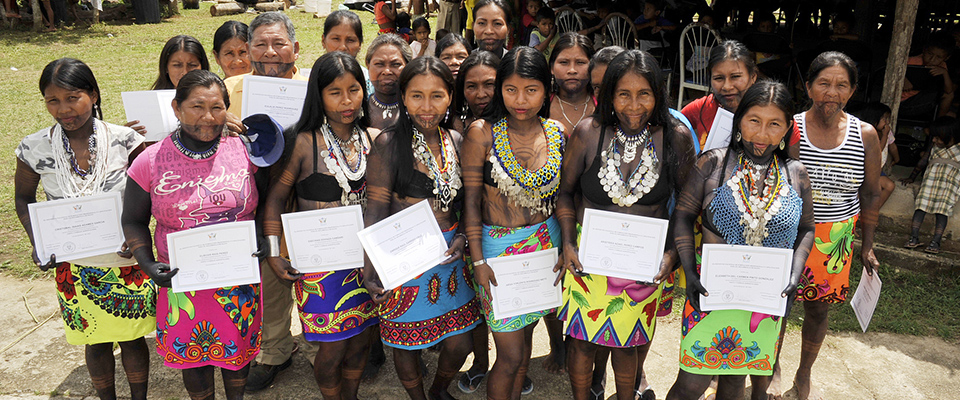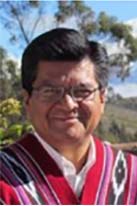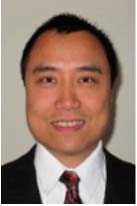- What We Do
- Agriculture and Food Security
- Democracy, Human Rights and Governance
- Democracy, Human Rights and Governance Strategy
- Supporting Free and Fair Elections
- Supporting Vibrant Civil Society & Independent Media
- Protecting Human Rights
- Promoting Accountability & Transparency
- Importance of Democracy, Human Rights, & Governance to Development
- COVID-19: Issues and Potential USAID Responses
- Countering Trafficking in Persons
- Global Labor Program
- Religious Freedom
- Youth Impact
- Economic Growth and Trade
- Education
- Environment and Global Climate Change
- Gender Equality and Women's Empowerment
- Global Health
- Humanitarian Assistance
- Transformation at USAID
- Water and Sanitation
- Working in Crises and Conflict
- U.S. Global Development Lab
Speeches Shim

Mission Statement
Our objectives are to strengthen USAID’s engagement with Indigenous Peoples to ensure development programs align with their development priorities, to safeguard against unintended harm, and to empower Indigenous Peoples to exercise their rights, participate in decision-making processes that impact them, and practice self-determined development. We achieve these objectives by doing research and learning from past experiences; piloting innovative models of consultation and collaboration; disseminating best practices; and helping other stakeholders, including host country governments, to take a transparent and accountable approach to working with Indigenous Peoples.
USAID's Indigenous Peoples Working Group
The USAID Indigenous Peoples Working Group is comprised of technical experts who have worked with Indigenous Peoples on the challenges of development programs. Our sectoral focus include democracy, human rights, and governance; land tenure; natural resource management; food security; education; economic growth; infrastructure; and others. We work to ensure that USAID’s development strategies and programs respect Indigenous Peoples’ rights and that USAID works with Indigenous Peoples, as partners, toward the same goals of improving the impact and sustainability of development programs.
Staff
Luis-Felipe Duchicela
Senior Advisor for Indigenous Peoples’ Issues

On June 10, 2019, Luis-Felipe Duchicela joined USAID as the new Senior Advisor for Indigenous Peoples' Issues for the Center on Democracy, Human Rights, and Governance at USAID's Bureau for Democracy, Conflict, and Humanitarian Assistance, based in Washington, D.C. In this capacity, Luis-Felipe advises USAID on matters relating to the rights, needs, and aspirations of Indigenous Peoples internationally and coordinates with interagency colleagues on such matters in meetings with foreign governments and multilateral institutions. Luis Felipe will support the implementation of USAID’s Policy on Promoting the Rights of Indigenous Peoples (PRO-IP). He will also assess and provide technical assistance to field Missions in implementing best practices and effective approaches to supporting the self-determined development goals of Indigenous Peoples’ communities.
Prior to USAID, Luis-Felipe served as the Global Advisor on Indigenous Peoples at the World Bank during five and a half years (2013-2018) where he assisted World Bank regional and country offices in assessing the situation of Indigenous Peoples and preparing plans and programs that take into account Indigenous Peoples’ ancestral knowledge, cultural identity, legal rights and linkages to natural environments and resources. Luis Felipe led the global dialogue between the Bank and the Indigenous Peoples of the world as part of the reform process of the Bank’s Environmental and Social policies, which culminated in the new Environmental and Social Framework (ESF) and the new Standard for Indigenous Peoples (ESS7).
Prior to that, Luis-Felipe served as the Executive Director of the Amazon Conservation Association, as Regional Director for the Rainforest Alliance and was the first National Secretary (Minister) of Indigenous Peoples and Ethnic Minority Affairs of the Republic of Ecuador. Luis Felipe holds a Master’s degree in Public and Private Management from Yale University and a Bachelor’s degree in Architecture and Regional Planning from the Universidad Central del Ecuador in Quito. Luis Felipe comes from the Puruwa nation of the Andean highlands of Ecuador which was once part of the Inca empire.
Vy Lam
Advisor on Indigenous Peoples

Vy Lam is the Advisor on Indigenous Peoples on the Human Rights Division of the Center on Democracy, Human Rights, and Governance at USAID's Bureau for Democracy, Conflict, and Humanitarian Assistance. Vy supports the integration of human rights of Indigenous Peoples into USAID policies and programs. In the last eight years, Vy has worked to promote the rights of marginalized communities including Indigenous Peoples; Lesbian, Gay, Bisexual, Transgender and Intersex persons; survivors of trafficking; and has provided technical assistance to program design and implementation of regional and bilateral programs in Asia, Europe and Eurasia, Africa, and Latin America and the Caribbeans. Vy also contributes to reforming operations, conducting field research, and developing data and analytics to support the integration of marginalized communities across development sectors. Vy is an interdisciplinary scientist with a background in microbiome physiology, radio pathology, viral immunology, cardiovascular diseases, and tissue engineering. Vy received his PhD from the University of Wisconsin, Madison, where he studied the dynamics of vesicular stomatitis replication and its induction of immunity.

Comment
Make a general inquiry or suggest an improvement.